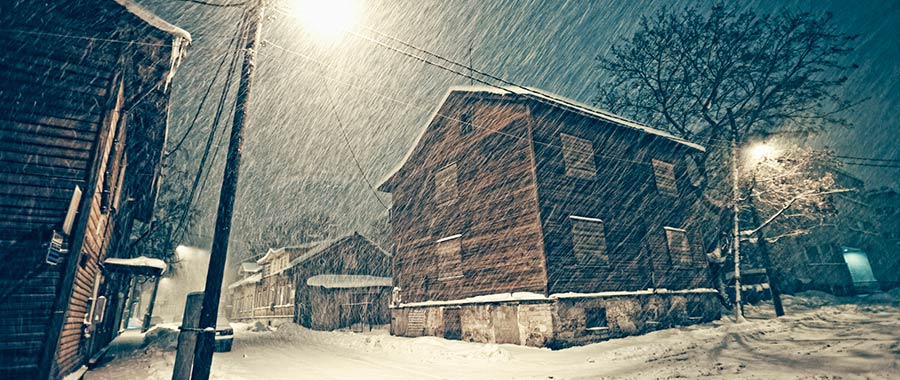Events of nature often provide a vivid reflection of the internal human experience, and the tempestuous night is an emblematical representation of the vicissitudes of life. Just as a storm can evoke awe, fear, tranquility, or chaos, so too can it embody the spiritual and emotional struggles that individuals encounter throughout their lives. This essay delves into the Bahá’í concepts that can illuminate the significance of such natural phenomena, particularly a stormy night, as a conduit for spiritual enlightenment and personal development.
The Bahá’í Faith teaches that the natural world is a manifestation of the divine. Every storm, every raincloud, serves as a reminder of both God’s majesty and the complexity of the universe. The tempest, with its howling winds and pounding rain, mirrors the stormy currents of human thought and emotion. Just as the weather is unpredictable and often chaotic, so too are the trials and tribulations faced by individuals. Indeed, the resilience shown in the face of nature’s fury can inspire similar fortitude amidst personal storms.
This observation invites us to contemplate the deeper reasons for our fascination with stormy nights. They serve as a backdrop against which the drama of existence unfolds. In moments of solitude, individuals find themselves reflecting on their circumstances, which can lead to profound insights. Bahá’í teachings advocate for the practice of reflection and meditation, emphasizing that quiet contemplation can illuminate the path toward personal growth. A stormy night, both literal and metaphorical, becomes a fortress of contemplation—a time to delve deep into the self.
Within the Bahá’í framework, the significance of inner reflection cannot be overstated. The aftermath of any tumultuous experience often yields clarity. The Bahá’í writings encourage believers to seek companionship with their inner thoughts. A stormy night, when the cacophony of raindrops composes a soliloquy of introspection, becomes ripe for self-discovery. The question arises: What do we learn when we engage with our personal storms?
Through the lens of Bahá’í philosophy, personal challenges are perceived not merely as trials but as opportunities for spiritual ascension. They provide the context for developing virtues such as patience, resilience, and empathy. It is during these times of struggle that individuals can cultivate a deeper understanding of their inner selves, grappling with existential queries and societal roles. A stormy night can symbolize that heavy introspection, heralding both anguish and awakening.
Moreover, Bahá’í advocacy for unity highlights the necessity of community support in times of adversity. As the storm rages outside, individuals can draw upon the strength of collective resilience. This principle can be likened to the way a tree stands firm against howling winds—not in isolation but anchored by the roots that intertwine and support one another. Consequently, a stormy night can also invoke reflection on the interconnectedness of humanity. In the darkest hours, our shared experiences unite us and remind us that we are part of a greater whole.
Intriguingly, storms also embody the concept of purification. The chaos they bring often precedes renewal—an essential component of both nature and the human experience. Bahá’í teachings assert that purity of heart and intent is paramount for spiritual advancement. Thus, one might consider the storms in life as an essential refining process, much like the cleansing rain that nourishes the earth. In enduring and overcoming struggles, individuals can emerge with a renewed sense of purpose and depth.
Nights of tempest also foster an appreciation for light. The contrast between darkness and illumination exemplifies the duality inherent in human existence. The serene calm following a storm creates a tableau for the emergence of light, both literally and figuratively. Bahá’í literature often speaks of the light of understanding and wisdom, portraying it as a transformative force in navigating the complexities of life. Upon emerging from the clutches of a storm, one can bask in the clarity and insight gained through adversity.
The Bahá’í perspective invites individuals to embrace the storms of their existence with open arms, recognizing that they play an integral role in the journey toward spiritual maturity. Each storm—a culmination of myriad experiences—contributes to the richness of one’s essence. By engaging with this dynamic and often tumultuous experience, individuals cultivate attributes that are essential for the advancement of both personal and collective humanity.
This sentiment can illuminate our understanding of a stormy night as more than just a meteorological event. It becomes a metaphor for both the challenges we face and the insights we glean. Within the Bahá’í framework, the cyclical nature of storms—on both grand and intimate scales—encourages an appreciation for life’s transience and the intrinsic lessons that lie therein. The storm, then, serves not only as a harbinger of turmoil but also as a catalyst for transformation, urging us to move beyond superficial observations and delve into the core of human experience.
In conclusion, the contemplation of a stormy night through the lens of Bahá’í teachings provides an opportunity to explore the profundities of human existence. It prompts reflections on personal adversity, community, purification, and the light that follows darkness. By embracing the storms we encounter, we embark on a journey toward self-discovery and spiritual enlightenment, ultimately contributing to our development as enlightened and unified individuals in an ever-evolving world.
